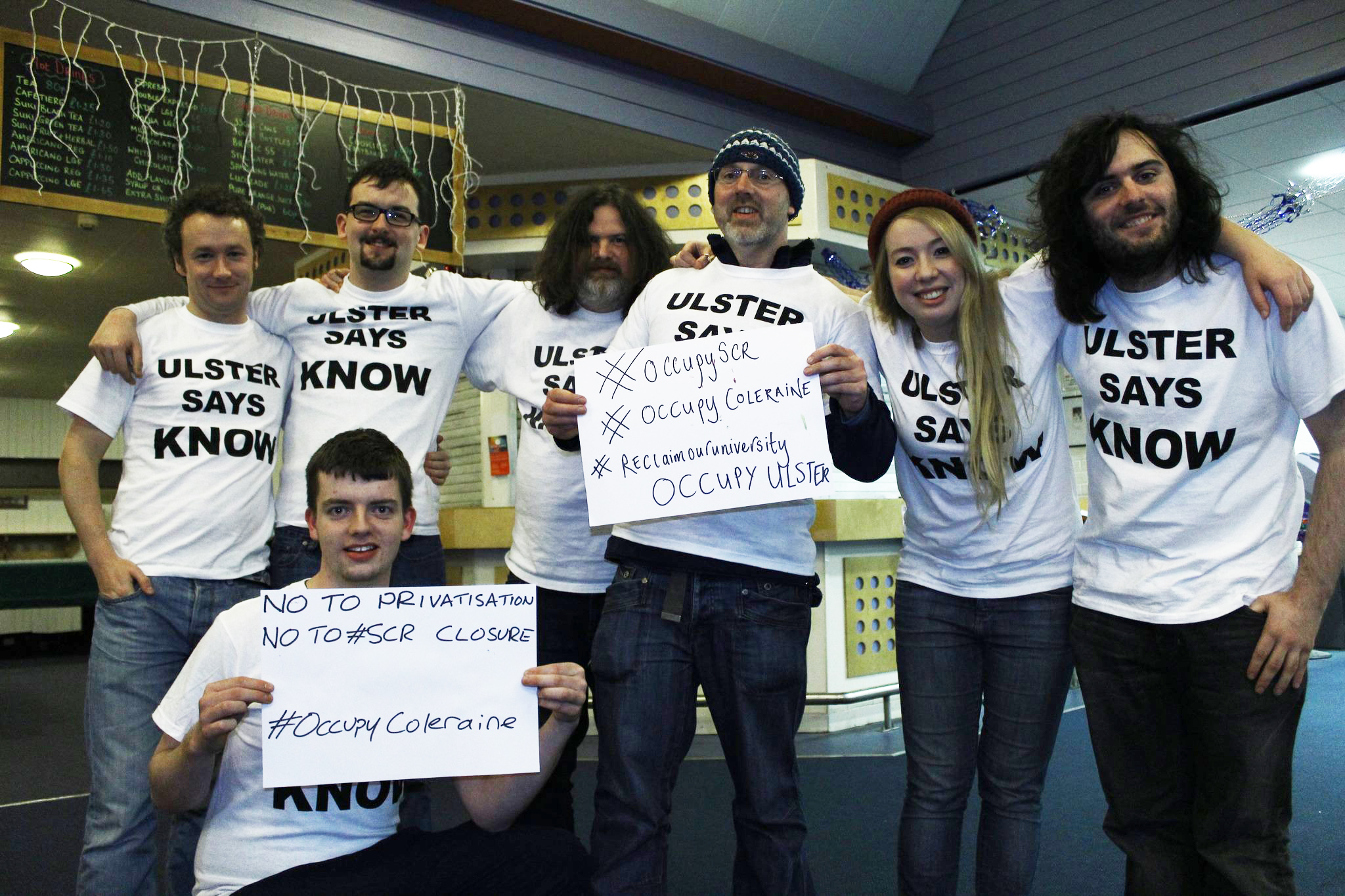CATHERINE HEALY
News Editor
Student activists have vowed to continue their occupation of the Senior Common Room (SCR) at the University of Ulster, Coleraine, in protest against its imminent closure. The sit-in is to continue until the group’s “demands are met”, Chloe Gault, a spokesperson for Occupy Coleraine, has told Trinity News.
Student protestors took over the room last Monday night in a bid to save what they describe as “the last non-commercialized public space on campus”. The room is regularly used by clubs and societies, and hosts community functions organised by local business. The SCR also has historical significance for Coleraine students. During the Troubles, a spokesperson for the group has said, it was “a beacon of neutrality” and “allowed students from either side of the sectarian divide to come together in a space they could call their own.”
It is understood that the SCR will function as a private dining area for the use of college executives from the end of December. Its forced closure, the University and College Union (UCU) commented last week, is part of “a systematic drive by the Senior Management Team to downgrade, or do away with completely, any of the facilities for staff and students on the campus.”
The Coleraine occupation coincided with industrial action taken by lecturers across the UK last Tuesday after university managers failed to come to an agreement with UCU, Unison and Unite over the issue of lecturers’ pay, which has failed to rise in line with inflation in recent years. Jimmy Kelly, United Regional Secretary, praised the sit-in last week for having provided “a masterclass in solidarity”.
The protest has also been commended by Terry Eagleton, who joined the student occupation on Wednesday. “What you’ve done here – whatever the outcome of this event – is you’ve transformed yourselves from recipients to agents, to actually taking control of the situation,” he said. “That’s the first step in any kind of radical politics. You’re here to defend not just this space, but this space as symbolic of the very ideal of education, of the very idea of the university, which is in danger of sinking without trace.”
Eagleton defined the option facing universities as “a choice between education for society and education for economy.” Increasingly, he said, “the production of knowledge is being incorporated into institutions of corporate capitalism.” University bureaucrats and “technocrats of the mind” have turned universities into “mind factories which sell commodified knowledge.” Occupy Coleraine, he said, represents “the real university – which the philistines who run places like this would not recognise were it to drop straight into their laps.”
Occupy Coleraine is one of a number of sit-ins that took place last week in solidarity with striking university staff. On Wednesday, students at London University’s School of Oriental and African Studies (SOAS) occupied the offices of its senior management over demands ranging from better pay and conditions for outsourced cleaners, to a maximum pay ratio of 10:1 between the lowest-paid and highest-paid staff in the university. Their protest lasted only for a number of hours, after they were forcibly expelled by security staff onto the streets, where they clashed with police. A video which has since appeared online appears to show a policeman punching a student.
Students at the University of Sheffield also occupied a campus room last week in a protest organised by the Sheffield Revolutionary Socialist Society. “Government and management are increasingly motivated by market forces and austerity rather than any commitment to education,” the society said in a statement last week. “We see solidarity as a weapon, not a word, and we will continue to take action in support of staff forced to provide services for ever-diminishing returns, while those at the top continue to line their own pockets”.






